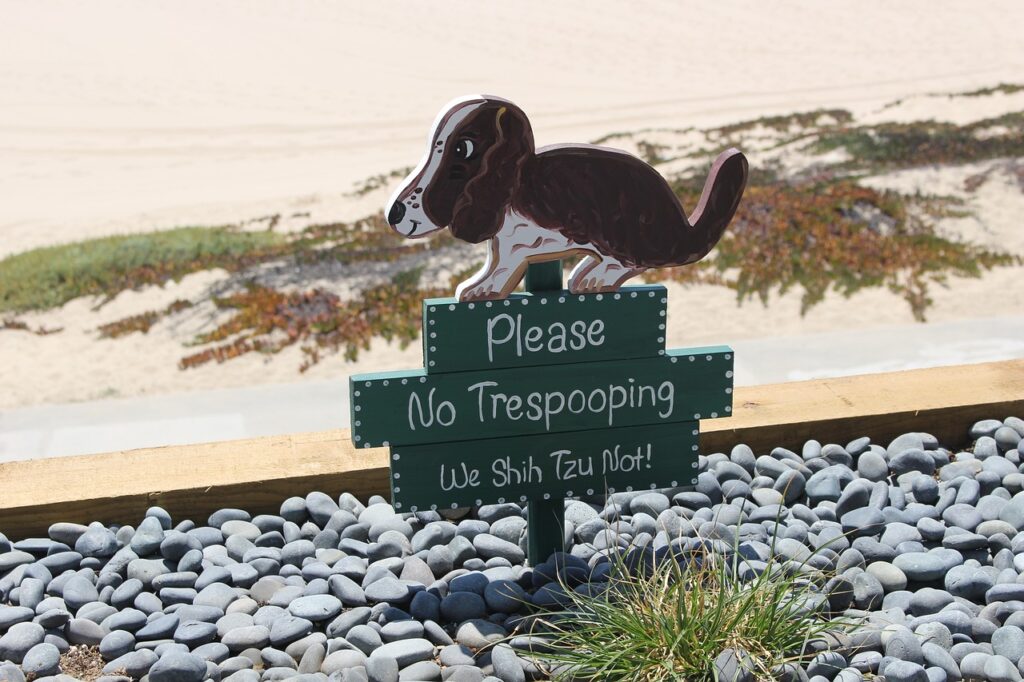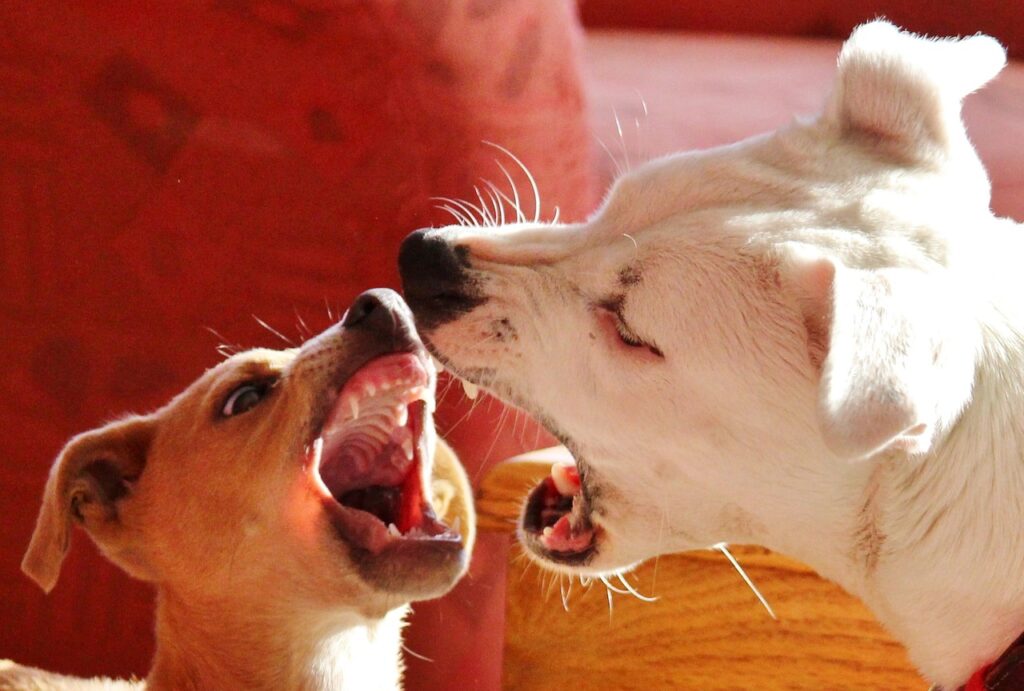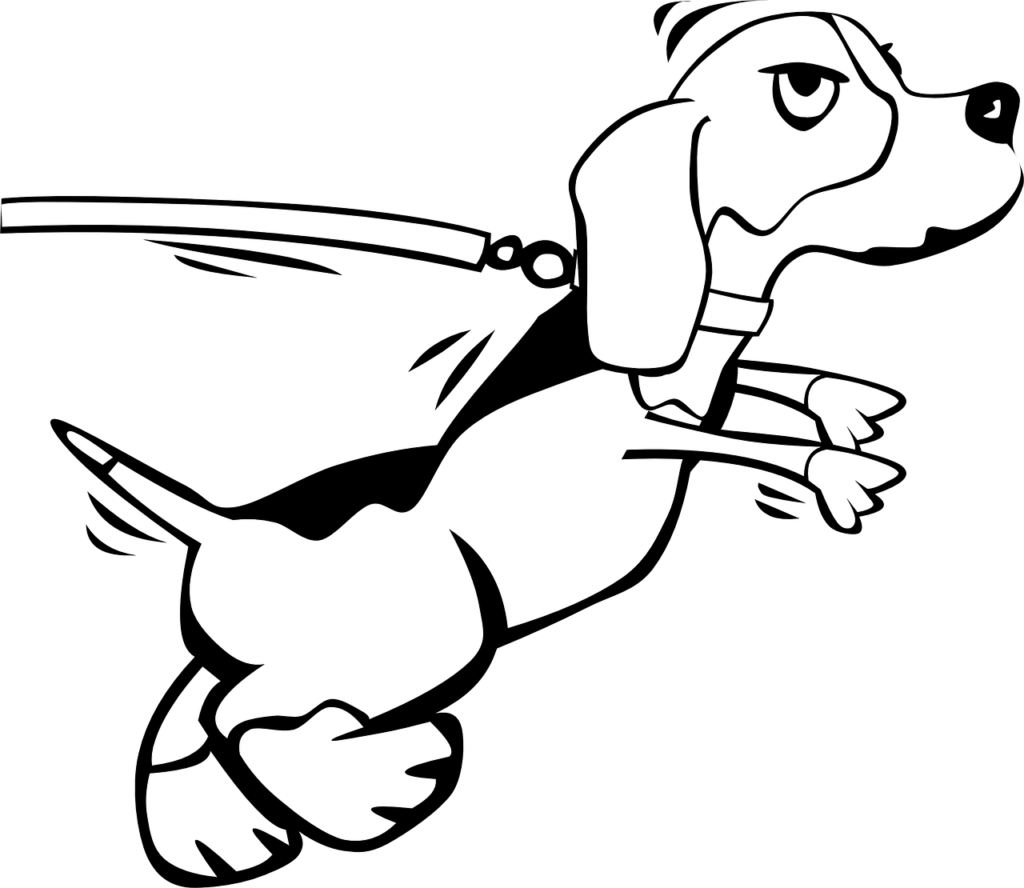
Do you ever wonder why your beloved furry friend sometimes turns into a destructive force? It can be confusing and frustrating to come home to chewed furniture, torn pillows, or shredded shoes. But fear not! In this article, we will explore the possible reasons behind your dog’s destructive behavior and provide you with some valuable insights and solutions. Get ready to understand your canine companion on a whole new level and create a harmonious living space for both of you.
Understanding Destructive Behavior in Dogs
Destructive behavior in dogs can be frustrating and worrisome for pet owners. Whether it’s chewing up your favorite shoes, digging up the garden, or scratching your furniture, destructive behavior can be both costly and distressing. However, it’s important to understand that dogs engage in destructive behavior for various reasons, and identifying the underlying cause is crucial in addressing the issue effectively. In this comprehensive article, we will explore the different types of destructive behavior, common reasons behind it, and the impact it can have on dogs.
Types of Destructive Behavior
Destructive behavior in dogs can manifest in several ways, and understanding these different types is key to addressing the problem. Here are some common forms of destructive behavior:
Chewing and Gnawing
Chewing and gnawing on objects is a natural behavior for dogs, especially when they are teething. However, when this behavior extends beyond the teething phase or becomes excessive, it can result in damaged belongings and potential health issues.
Digging and Excavating
Some dogs have an innate instinct to dig, whether to find hidden treasures or simply out of boredom. Digging behavior can ruin gardens, lawns, and even cause escape attempts, leading to safety concerns.
Scratching and Clawing
Dogs may scratch and claw at furniture, walls, or doors as a way of marking their territory or relieving stress. Persistent scratching can cause significant damage to household items and pose a challenge in maintaining a clean and presentable home.
Shredding and Tearing
Tearing apart pillows, cushions, or household items is another common form of destructive behavior in dogs. This behavior is often linked to separation anxiety or a lack of mental stimulation.

Common Reasons for Destructive Behavior
Understanding the root cause of your dog’s destructive behavior is essential in addressing and preventing it. While each dog is unique, there are several common reasons that can contribute to destructive behavior:
Teething
Puppies, in particular, experience teething discomfort, causing them to chew on objects to alleviate pain and promote the healthy development of their adult teeth. However, some dogs may continue this behavior into adulthood, especially if they haven’t been appropriately trained or provided with suitable chew toys.
Boredom
Dogs are intelligent animals that require mental and physical stimulation. When left alone for extended periods without proper stimulation or outlets for their energy, dogs can become bored. They may resort to destructive behavior as a way to entertain themselves or alleviate their frustration.
Separation Anxiety
Separation anxiety is a common cause of destructive behavior in dogs. When dogs become anxious or stressed due to their owner’s absence, they may resort to destructive behaviors as a coping mechanism. This can include chewing, digging, or excessive barking.
Excessive Energy
Certain breeds and individual dogs have high energy levels that need to be properly addressed. When dogs do not receive sufficient exercise or mental stimulation to burn off their excess energy, they are more likely to engage in destructive behaviors as a means to release that pent-up energy.
The Impact of Destructive Behavior on Dogs
Destructive behavior not only affects the well-being of the pet owner but also has a significant impact on the dog itself. It’s essential to consider the consequences of destructive behavior and how it can affect dogs:
- Physical injury: Engaging in destructive behavior can expose dogs to the risk of physical injury. Consuming foreign objects or chewing on toxic substances can result in choking, digestive upsets, or even poisoning.
- Emotional distress: Dogs that exhibit destructive behavior may also experience emotional distress. Whether due to anxiety, fear, or frustration, these negative emotions can lead to decreased overall well-being and potentially manifest in other behavioral issues.
- Damage to the human-animal bond: Destructive behavior can strain the relationship between dog and owner, as constant damage to belongings or property can lead to frustration and resentment. This strain on the bond can hinder the ability to establish trust and a positive connection with the dog.
- Risk of relinquishment: Dogs that consistently engage in destructive behavior may face an increased risk of being surrendered to shelters or rehomed. Owners who feel unable to manage or control their dog’s behavior may see no other option, putting the dog’s future in jeopardy.
Understanding these potential impacts emphasizes the importance of addressing and resolving destructive behavior in a timely and effective manner.

Physical Reasons for Destructive Behavior
While many forms of destructive behavior stem from behavioral or environmental factors, it’s crucial not to overlook underlying physical reasons that may contribute to a dog’s destructive behavior. Identifying these physical issues and providing appropriate veterinary care is essential for managing and preventing destructive behavior:
Teething
As mentioned earlier, teething can cause discomfort for puppies. Ensuring they have appropriate chew toys designed for teething puppies can help alleviate their urge to chew on inappropriate objects.
Boredom
Lack of physical exercise and mental stimulation can contribute to boredom, which can manifest as destructive behavior. Regular exercise, interactive play sessions, and engaging toys can help reduce boredom and redirect your dog’s energy towards appropriate outlets.
Separation Anxiety
Separation anxiety is a complex issue that may require professional assistance to address effectively. A combination of behavior modification techniques, positive reinforcement, and, in severe cases, medication, can help alleviate separation anxiety and mitigate its corresponding destructive behavior.
Excessive Energy
High-energy breeds or dogs with excessive energy levels need regular exercise to help them reach a calmer state. Providing daily physical activity, such as walks, runs, or playtime at the park, can help reduce destructive behavior resulting from excess energy.
In addition to these physical reasons for destructive behavior, it’s important to address any potential health problems or pain that your dog may be experiencing, as these can also contribute to destructive behavior.
Environmental Factors
Environmental factors play a significant role in a dog’s behavior, including destructive behavior. These factors can range from the living conditions they are exposed to daily to the level of social interaction they receive. Here are some environmental factors that can contribute to destructive behavior:
Lack of Exercise
Insufficient physical exercise can lead to restless and frustrated dogs. Similar to humans, dogs require regular exercise to maintain their overall health and well-being. Regular walks, runs, or engaging in active play sessions can help burn off excess energy and reduce the likelihood of destructive behavior.
Lack of Mental Stimulation
Just as important as physical exercise, mental stimulation is crucial for a dog’s overall happiness and behavior. Mental stimulation can be provided through puzzle toys, treat-dispensing toys, or interactive games that challenge your dog’s mind and keep them mentally engaged.
Unsuitable Living Conditions
Living in an environment that is not suitable or safe for dogs can contribute to destructive behavior. This can include inadequate shelter, lack of appropriate toys or objects to chew, or exposure to loud noises or construction. Ensuring that your dog’s living conditions are comfortable, secure, and stimulating can help reduce destructive behavior.
Social Isolation
Dogs are social animals that thrive on companionship and interaction. Lack of socialization and isolation can lead to boredom and anxiety, which can manifest as destructive behavior. Providing opportunities for socialization, such as playdates with other dogs or regular visits to a dog park, can help alleviate social isolation and prevent destructive behavior.

Lack of Training and Behavioral Issues
A lack of proper training and unresolved behavioral issues can significantly contribute to destructive behavior in dogs. Addressing these training and behavioral issues is crucial in managing and preventing destructive behavior:
Insufficient Basic Obedience Training
Without proper basic obedience training, dogs may not understand boundaries or appropriate behavior. Teaching commands such as “sit,” “stay,” and “leave it” can help establish clear expectations and prevent destructive behavior.
Fear and Aggression
Fear or aggression-related behavioral issues can contribute to destructive behavior. For example, a dog may destroy items in an attempt to protect themselves from perceived threats or as a response to anxiety. Working with a professional dog trainer or behaviorist can help address these specific issues and modify the dog’s behavior.
Attention-Seeking Behavior
Some dogs engage in destructive behavior as a way to seek attention from their owners. It’s important to ensure that your dog is receiving adequate attention and interaction throughout the day to minimize attention-seeking destructiveness.
Resource Guarding
Resource guarding refers to a dog’s aggressive behavior when it believes its possessions, such as food, toys, or a favorite resting spot, are being threatened. This behavior may lead to destructive behavior as the dog attempts to protect its resources. Appropriate training and behavior modification techniques can be employed to manage and reduce resource guarding.
Health Problems and Pain
Sometimes, underlying health problems or pain can be the cause of destructive behavior in dogs. Identifying and addressing these health issues is vital in managing and preventing destructive behavior:
Dental Issues
Dental problems, such as gum disease or tooth decay, can cause discomfort and pain for dogs. They may resort to destructive behavior as a way to alleviate the pain or address the discomfort. Regular dental check-ups and appropriate dental care can help prevent dental-related destructive behavior.
Ear Infections
Untreated ear infections can be quite painful for dogs and may result in them scratching or shaking their heads excessively. This behavior can lead to further damage if left untreated and unaddressed. Regular ear cleaning and prompt veterinary care for any signs of infection can help prevent this type of destructive behavior.
Arthritis or Joint Pain
Dogs suffering from arthritis or joint pain may engage in destructive behavior as a result of their discomfort. For example, they may chew excessively on objects to relieve pain or create a comfortable spot to rest. Consultation with a veterinarian and appropriate pain management strategies can help alleviate these issues.
Digestive Problems
Digestive issues, such as food allergies or gastrointestinal disorders, can cause discomfort and pain in dogs. This discomfort may lead to destructive behavior, such as excessive scratching or chewing. Identifying and addressing the underlying cause of these digestive problems through proper diet and veterinary care can help reduce destructive behavior.
Signs of Destructive Behavior
Recognizing the signs of destructive behavior is crucial in addressing the issue promptly. By doing so, you can take appropriate measures to prevent further damage and address the underlying causes. Here are some common signs of destructive behavior in dogs:
Chewing and Gnawing
If you notice that your dog is consistently chewing on inappropriate objects, such as furniture, shoes, or household items, it may indicate destructive behavior. Keep an eye out for chewed-up belongings or evidence of excessive gnawing.
Digging and Excavating
Unwanted digging in the garden or attempts to escape by digging under fences are signs that your dog may be engaging in destructive behavior. Look for telltale signs of digging, such as disturbed soil, holes, or landscaping damage.
Scratching and Clawing
Excessive scratching of furniture, walls, or doors can be a sign of destructive behavior. This behavior may indicate an underlying issue, such as stress, anxiety, or a need for territorial marking.
Shredding and Tearing
If you find torn-up pillows, cushions, or other objects in your home, it’s likely that your dog is engaging in destructive behavior. This type of behavior may be driven by anxiety, boredom, or a lack of mental stimulation.
Preventing Destructive Behavior
Preventing destructive behavior involves a combination of proactive measures to address the underlying causes and provide outlets for your dog’s energy and mental stimulation. Here are some strategies to help prevent destructive behavior:
Providing Mental and Physical Stimulation
Regular exercise, both physically and mentally, is essential to keep your dog stimulated and engaged. Incorporate daily walks, interactive play sessions, and puzzle toys to provide outlets for their energy and prevent boredom.
Establishing a Routine
Creating a consistent daily routine can help dogs feel secure and reduce anxiety-induced destructive behavior. Ensure that your dog has meal times, exercise sessions, and rest periods at predictable times throughout the day.
Proper Socialization
Introducing your dog to different environments, people, and other animals from an early age can help prevent social isolation and reduce destructive behavior caused by anxiety or boredom. Enroll your dog in obedience classes or seek professional guidance for proper socialization techniques.
Creating a Safe Environment
Dog-proofing your living space can prevent destructive behavior caused by access to harmful or valuable items. Keep household cleaners, medications, and toxic substances out of your dog’s reach. Provide appropriate chew toys and objects for your dog to redirect their chewing instincts.
Managing Destructive Behavior
While prevention is the ideal approach, sometimes management of destructive behavior is necessary for immediate results. Here are some strategies that can be employed to manage your dog’s destructive behavior:
Crate Training
Using a crate or kennel can help manage destructive behavior when you cannot directly supervise your dog. Ensure the crate is appropriately sized and filled with comfortable bedding and engaging toys to create a positive association.
Interactive Toys and Puzzles
Providing interactive toys and puzzle feeders can divert your dog’s attention away from destructive behavior and provide mental stimulation. These toys require problem-solving skills and can keep your dog engaged and entertained.
Positive Reinforcement Training
Using positive reinforcement techniques, such as rewarding good behavior and redirecting negative behavior, can help manage destructive tendencies. By reinforcing and rewarding desired behaviors, your dog is more likely to engage in those positive behaviors instead of destructive ones.
Behavioral Modification Techniques
In some cases, professional help may be needed to address and modify destructive behavior. Working with a certified dog trainer or behaviorist can help identify the underlying causes and develop a tailored plan to address and modify the behavior effectively.
Seeking Professional Help
If you find that your efforts to address and manage destructive behavior are not effective, seeking professional help is a viable option. Here are some resources and professionals you can reach out to:
Consulting a Veterinarian
If you suspect that your dog’s destructive behavior may be rooted in underlying health issues, consulting with a veterinarian is essential. They can conduct a thorough examination to rule out any physical causes and recommend appropriate treatment options.
Working with a Certified Dog Trainer
Certified dog trainers specialize in behavior modification techniques and can work with you to develop a personalized plan to manage and prevent destructive behavior. They can provide guidance on training exercises, socialization strategies, and address any specific behavioral issues.
Behavioral Therapy and Medication
For severe cases of destructive behavior, especially those resulting from anxiety or compulsive disorders, behavioral therapy or medication may be recommended. Consulting with a veterinary behaviorist or a veterinarian experienced in behavioral medicine can help determine the best course of action for your dog.
Support Groups and Resources
Joining support groups or seeking online resources for pet owners facing similar issues can provide valuable insights, tips, and emotional support. Engaging with a community of fellow dog owners can offer a sense of camaraderie and help you feel less alone in dealing with destructive behavior.
Conclusion and Final Thoughts
Understanding the reasons behind destructive behavior in dogs is crucial in effectively addressing and preventing this issue. By identifying the root cause and implementing proactive measures, you can help your dog overcome destructive behavior and enhance the bond between you and your furry companion. Patience, persistence, and a commitment to providing your dog with appropriate mental and physical stimulation will help ensure that you enjoy a well-behaved canine companion for years to come. Remember, with the right approach and understanding, you can help your dog overcome destructive behavior and create a harmonious living environment for both of you.

